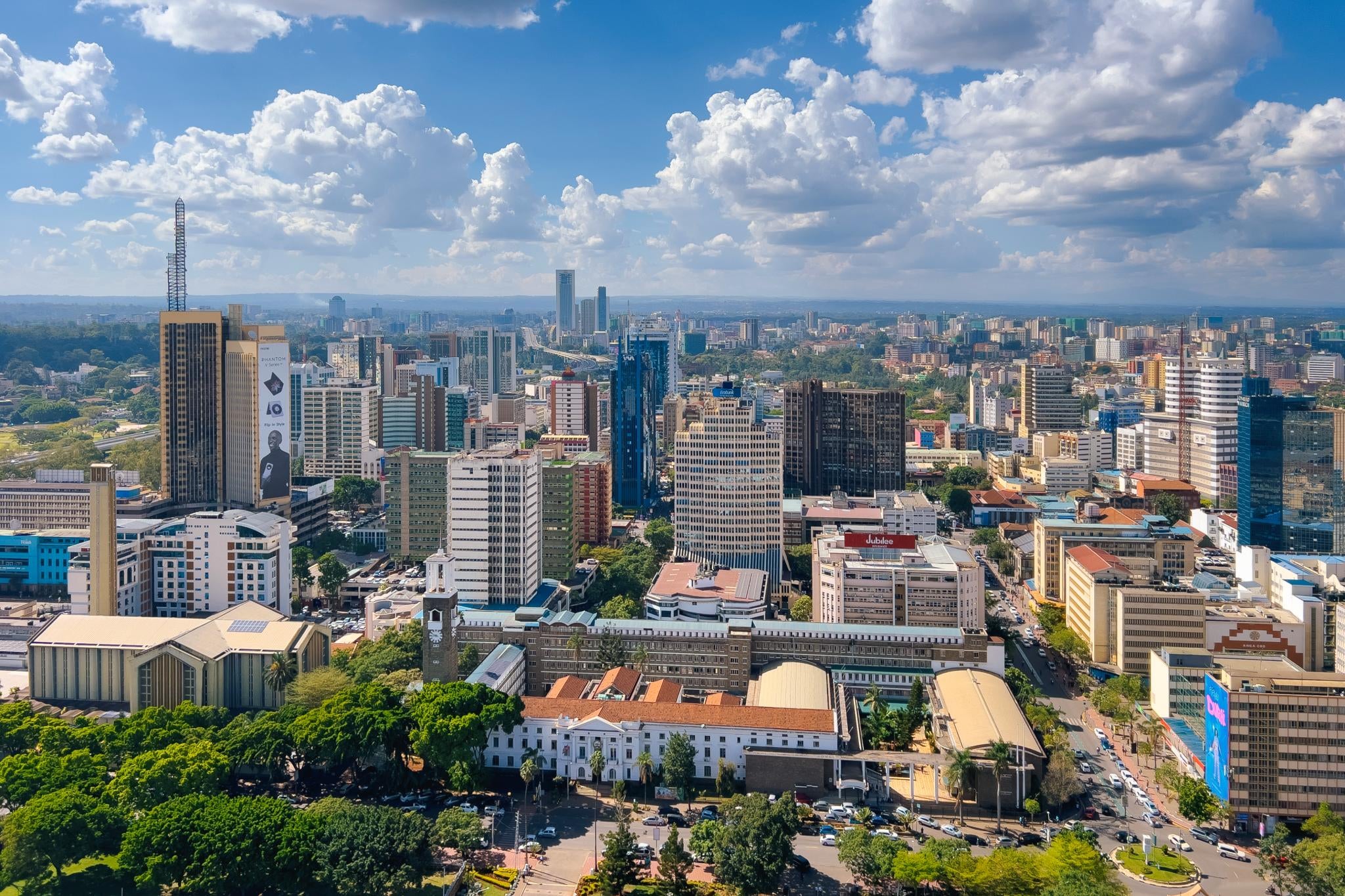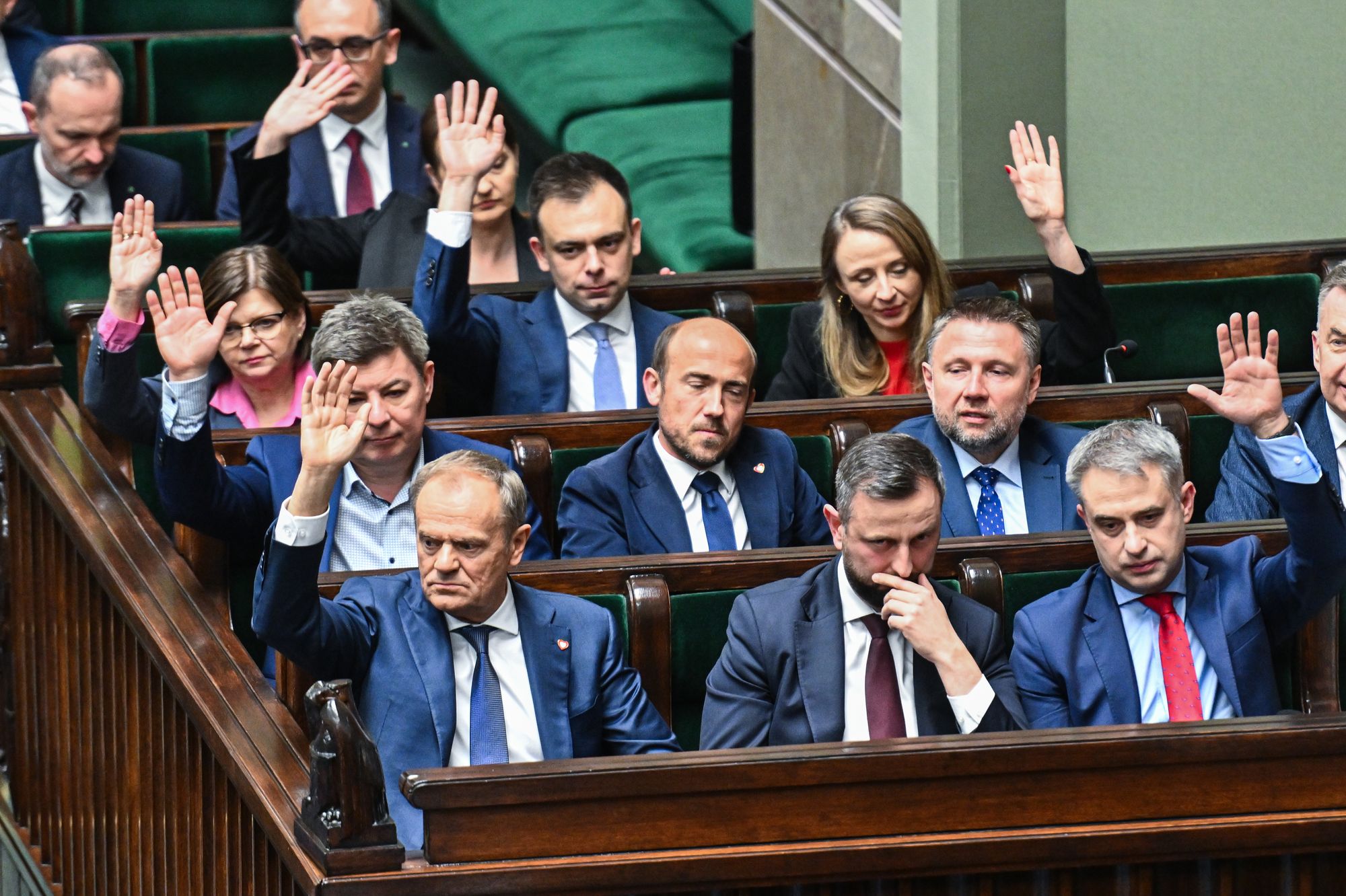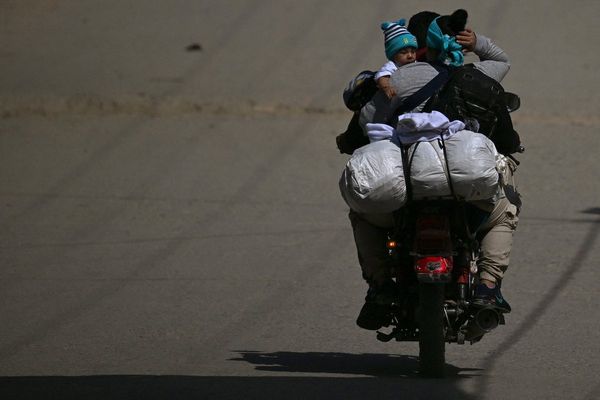
When Eve* sat down to hear Sharon Slater, head of the Mormon group Family Watch International (FWI) speak, she didn’t expect to hear the star speaker at the Pan-African Conference on Family Values in Nairobi reference Hitler within minutes of taking the stage – along with the suggestion that international charities were looking to “come after” Africa’s children.
The event, hosted at the Boma Hotel in the summer, sparked protest and petitions calling for it to be cancelled. It is one of a flurry of conferences that took place in recent months across Africa – in greater numbers than activists have seen before.
With foreign aid being slashed and Donald Trump flexing his political muscle back in the White House, global conservatives are pushing to mould the rest of the world in their own image. The conferences form part of modern-day missionary efforts seemingly aimed at halting the advance of sexual and reproductive rights across the continent, involving a number of possible legislative bills – from a new Pan-African family values charter to a draft anti-gay bill in Kenya.
The Independent has pieced together the events at the six-day Pan-African Conference on Family Values through recordings, documents and photos, including from Eve an activist who attended the event under her real name, but without mentioning the organisation she came from. They hint at how American conservative-endorsed conferences have become one engine behind some of these efforts to reverse rights.
Taking to the stage in Nairobi in the summer, Slater – American herself – spoke in front of a projected photo of Adolf Hitler and the words: “He alone who owns the youth, gains the future”. FWI said the use of the quote, “obviously was critical of Hitler”. She went on: “They're after our children. They're coming after them because our children are the future of our nations”.
‘They’, it seems, being the ecosystem of international agencies like the UN and charities working on improving women and girls’ health, including access to safe abortion care and sex education – rights that have been voted through by many African states.
During the Nairobi conference, Slater was celebrating her campaigning having already blocked comprehensive sex education “in many places.” FWI runs annual training sessions to teach countries to lobby at the UN and influence negotiations with the aim of “thwarting the radical sexual rights agenda”. Her group has been involved with three such conferences in Kenya, Uganda and Sierra Leone this year.

Slater later clarified to The Independent that the use of Hitler’s quote was “not meant to be or understood to be literal comparisons ... we firmly reject any ideology rooted in hate or authoritarianism. We emphasise that youth are vulnerable to ideological agendas like those deliberately embedded throughout ‘comprehensive sexuality education’”.
The idea of American conservatives potentially trying to influence African laws isn’t new. Slater had previously taken the stage at a related conference in Entebbe in Uganda in 2023 to offer assistance to African parliamentarians in drafting legislation. She claimed her work had already been used to stop comprehensive sexuality education – evidence-based programmes – in the country. That year, Uganda brought in its harsh Anti-Homosexuality Act, although Slater has consistently denied being involved in its drafting. Copycat bills appeared shortly afterwards in Ghana and Kenya, promoted by lawmakers who had attended the Entebbe conference.
FWI’s latest financial filings reveal Slater's group doubled its spending in Africa between 2022 and 2023, chiefly supporting conferences to the tune of $261,000 US dollars.
But this year, the speakers seemingly saw an even bigger opportunity – the vacuum left by Trump’s slashing of foreign aid. It is framed as a mission. Trump’s government is cutting off “millions...even billions of dollars” spent on “evil programmes”, through the United States Agency for International Development (USAID), said Thomas W Jacobson from the Global Life Campaign. "That's a good thing," he told the room which included representatives from the Kenyan and Ugandan governments, even if it means less money flowing to African countries.
Among the other speakers, ex-US Navy pilot Travis Weber from the US evangelical lobby group Family Research Council made the apparent aims of the conference even more explicit.
“Two years ago, God started putting it on my heart to respond,” Weber told the gathering on a quiet side street on the outskirts of Nairobi. The event that had sparked it all, the overturning of Roe v Wade in the US in 2022 – which had enshrined the right to abortion – had drawn the battle lines.
Now came the next stage. Weber said that with Trump “disrupting” government programmes, having cancelled around 80 per cent of programmes supporting developing nations, there were three phases to execute.
First, existing policies should be rolled back, he said: “The promotion of LGBT ideology and abortion to Africa and elsewhere around the world, that must be stopped”. Some could be amended, and then new ones should be introduced. Groups like his need to “actually step forward into that void,” he added. “I believe the time has come for a pro-family foreign policy from the United States.”
At the start of his second term, Trump cut the vast majority of foreign aid spending. The repercussions are now starting to be felt. Jerzy Kwasniewski, co-founder of Polish ultraconservative group Ordo Iuris, said international obligations made “aid conditional” on “promoting gender ideology [and] reproductive rights” as he urged attendees to “form a systematic resistance” against contraception, sex education, and abortion.
Ordo Iuris campaigned for a series of regressive laws in Poland, including a proposed abortion ban. A separate, near-total abortion ban was later introduced. At the conference, Poland is held up as a gold standard for what can be achieved. The organisation has since opened a new Africa office in Tanzania.

An Ordo Iuris spokesperson said Kwasniewski’s speech did not call for the cutting of aid to Africa but was "explicitly in response to ideologically motivated pressures from international institutions, not against the democratic decisions of sovereign African states". The speech was "a defence of national sovereignty, cultural identity, and the right of nations to shape their laws in accordance with their own values and traditions, free from external coercion” and a “one-size-fits-all" global policy agenda.
Erick Mundia, a lawyer at reproductive rights charity Ipas in Nairobi points out these rights have been agreed to by African states through the African Union (AU) as well as through the UN, of which African countries are voting members. “No African country has ever been forced to be part of a treaty or a convention [by the AU],” he says.
While progress has been uneven, Sub-Saharan Africa has seen big improvements in maternal mortality, HIV rates and healthcare access this century, saving millions of lives, in part due to the expansion of information about and access to contraception and safe abortion. Campaigners fear this progress could be under threat from a highly-conservative movement blossoming on the continent.
For example, the Maputo Protocol, drawn up through the AU 20 years ago and signed by 49 of 55 its members, guarantees sexual and reproductive healthcare for all women within the signatory countries.
A new would-be charter on African family values circulated at the Nairobi and Entebbe conferences has sections which appear to challenge those rights. A draft seen by The Independent says African states should reject legal agreements that advance reproductive rights or “normalise...LGBTQI ideologies” and ensure aid isn’t tied to such policies.

In response, FWI said "Regarding the Maputo Protocol, we respect the sovereignty of each nation in interpreting international agreements. In this regard, many African countries have exercised their right to enter reservations on specific provisions, specifically with regard to abortion. FWI encourages respectful dialogue about how regional and global conventions align with national priorities, religious and cultural values and particularly with child protection standards.
In Sierra Leone, campaigners fear that an upcoming maternal mortality bill could also be derailed. Both Slater and Sierra Leone's first lady spoke at the Sierra Leone Strengthening Families event in June. In the end, activists tracking the event behind the scenes told The Independent the tone was more neutral, but their fears remain.
“The first lady in Sierra Leone was present both days,” says Eve, which she describes as “concerning” given the high-level access this could give the organisations attending. When asked later about the maternal mortality bill by The Independent, Sierra Leone's chief minister said: "The President's position is clear on it. The President believes that we should enable our women to make choices on their health and he's been very specific about instances where the life of the mother is at risk, where the life of the baby is at risk, where people can make informed decisions."
Family Watch International said of the June event: "Our understanding is that this is not a policy or legislative event, nor is it affiliated with any political initiative."

Kristof Titeca, a professor at the Institute of Development Policy at Antwerp University says the influence of external actors, “shouldn't be overstated” – many supporters of the target laws are home-grown. But he says, conferences like Nairobi and Entebbe are important for creating alliances. He adds that a network of conferences can be influential when it comes to introducing or disrupting laws across Africa since it “empowers actors working on these issues”.
At the Entebbe conference this year, Uganda’s first lady and education minister referred to Slater as her sister while President Yoweri Museveni thanked her for her work. President Museveni also suggested Slater had helped him realise that the Samoa agreement – a broad partnership agreement between the European Union and African, Caribbean and Pacific countries - contained provisions around ensuring universal access to sexual and reproductive health services, saying he would look to, “pull out of that nonsense” as a result.
American and European movement leaders flying into Kenya to tell Africa about the continent’s values makes Esther Kimani of reproductive justice alliance Fos Feminista, “very angry".
"What they're saying is that us Africans don't even know what our African values look like... “We only have to wait for white men from Europe and America to come and teach us what African values really are,” Kimani says.
While a global movement opposing sexual and reproductive rights grows, and aid shrinks, highly conservative groups are already “moving aggressively to fill in those gaps," Kimani adds.
Wrapping up his speech in Nairobi, Ordo Iuris’ Kwasniewski signed off with a slip. “God bless America,” he said, before hastily correcting himself. “I mean...God bless Africa.”
This article was produced as part of The Independent’s Rethinking Global Aid project
*Names have been changed to protect identities
Chinese premier's visit to Zambia focuses on reviving a Cold War-era railway to help mineral access
Jesse Watters slams ABC reporter for asking about Khashoggi murder
Trump to sign bill to release Epstein files after it clears Senate and House: Live
Trump mocks Biden for fist-bumping Saudi Crown Prince Mohammed bin Salman
Rapper Nicki Minaj backs Trump and calls for protections for Christians in Nigeria
Nigeria school kidnapping: One student escapes as search for 24 others intensifies







